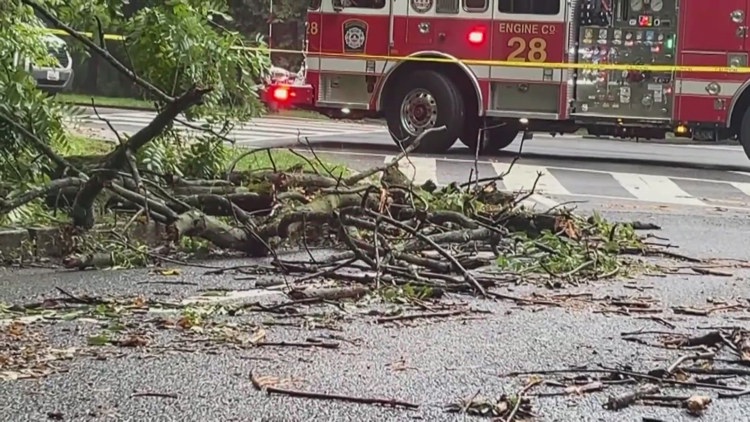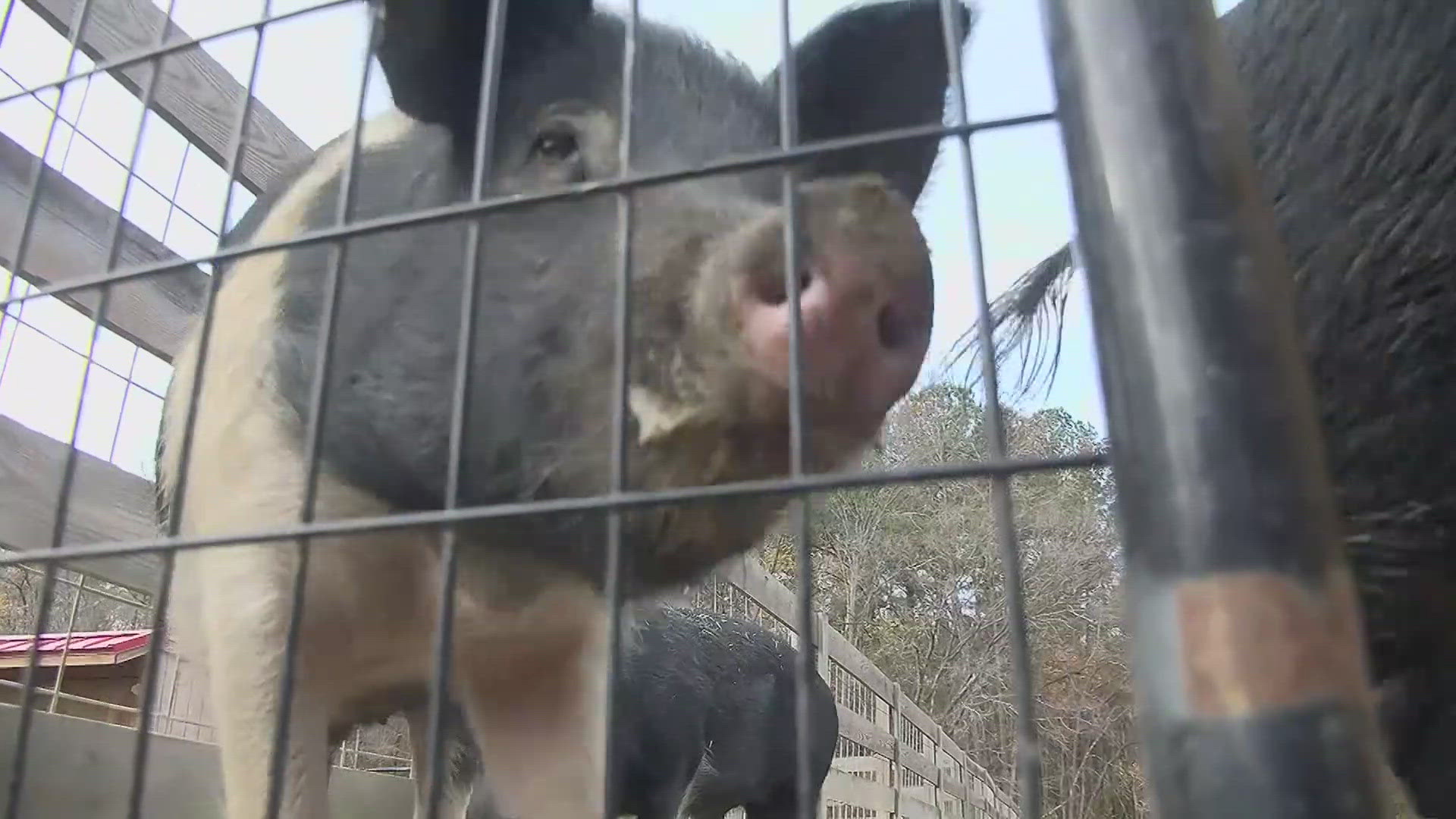VIRGINIA, USA — As parts of southwestern Virginia braces for some impact from Hurricane Helene, state officials are sharing helpful tips for state residents to navigate the severe weather.
First things first: Avoid unnecessary location changes and stay indoors if safe. A release by the Virginia State Police (VSP) recommends relocating if you live in an area prone to flash flooding, but encourages staying off the roads otherwise to "prevent unnecessary traffic crashes from occurring on Virginia’s highways during Helene." VSP asks residents to "postpone travel plans and avoid driving, when possible."
However, if you have to travel during severe weather conditions, here are some safety tips to follow:
1) Check your car and your supplies: It's always a good idea to make sure your vehicle is in good working order before you begin driving. That includes inspecting windshield wipers, windshield wiper fluid, tire tread, and battery life. Plus, it's always a good idea to make sure you're stocked with drinking water, snacks, cell phone charger and a flashlight for emergencies.
2) Use Headlights: Virginia law requires the use of headlights while windshield wipers are activated. This increases visibility for all on the roads.
3) Turn around, don't drown: Flooded streets can hold deeper dangers, and it's recommended to avoid driving through collected water. As little as six inches of water can cause you to lose control of your vehicle, VSP warns.
4) Slow down and don't tailgate: Slower speeds allow for more time to react in the event that you lose control of your vehicle. Give yourself more space between vehicles ahead of you to avoid rear end collisions.
5) Buckle up and put your phone down: Paying attention to the road will allow you to avoid risks, and buckling up could save your life if a crash does occur. As VSP notes, a worn seat belt "protects you from being thrown around the inside of your vehicle and suffering serious injury in a crash."
More safety tips, shared by the Virginia Department of Transportation (VDOT), include:
6) Avoid downed wires: The risk of electrocution is high with a downed power line during a storm, and trees or branches touching such wires should be avoided as well.
7) Obey road closures and traffic signals: Do not try to drive on roads with posted closure signage. Follow all traffic signals. In the event a signal is down, VDOT says "drivers should treat intersections as four-way stops or follow local law enforcement’s direction."
8) Move over for emergency crews: Make room for emergency workers operating in or near roadways.
9) Be alert to High Wind Advisories: High wind conditions can impact driver safety. VDOT recommends staying alert, "especially on bridges or taller structures. High-profile vehicles such as tractor trailers, SUVs or box trucks are especially vulnerable and should not cross a bridge when a High Wind Advisory is posted."
The latest information on road conditions, closures and updates can be found by calling 511 or visiting the VDOT Virginia Traffic Information Website here.
If you'd like to see the latest weather forecast in your area as Helene's impacts continue to be felt in the coming days, you can do so by clicking here.



